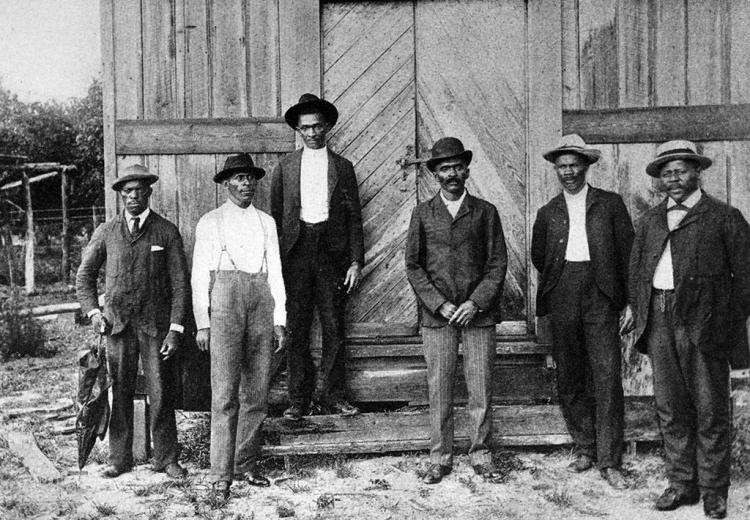Why Here?: Eatonville, Florida and Zora Neale Hurston

Eatonville City Council members in 1907.
Eatonville is the oldest all-Black town in the United States. Incorporated in 1887 by twenty-seven Black men, the town served as a beacon of freedom and autonomy to Black Floridians and other Black Southerners living through the racial violence and oppression of the Reconstruction era. The town’s St. Lawrence African Methodist Episcopal (AME) church and Robert Hungerford Industrial School upheld and passed down the values and practices of self-governance espoused by Eatonville’s founders. Eatonville was also the childhood home of author, anthropologist, and folklorist Zora Neale Hurston. Hurston’s upbringing in Eatonville shaped the questions and perspectives she brought to her literary work and research.
This Media Resource introduces students to Eatonville’s history and Zora Neale Hurston’s life and work. Guiding questions, video interviews, and other digital materials offer insight into Hurston’s life and Eatonville’s significance as an early and lasting pillar of Black Southern culture and folkways. These resources also offer strategies for incorporating place-based pedagogy into history, literature, and civics lessons. You can also learn more about Zora Neale Hurston’s life and writings through the numerous other NEH-supported projects.
